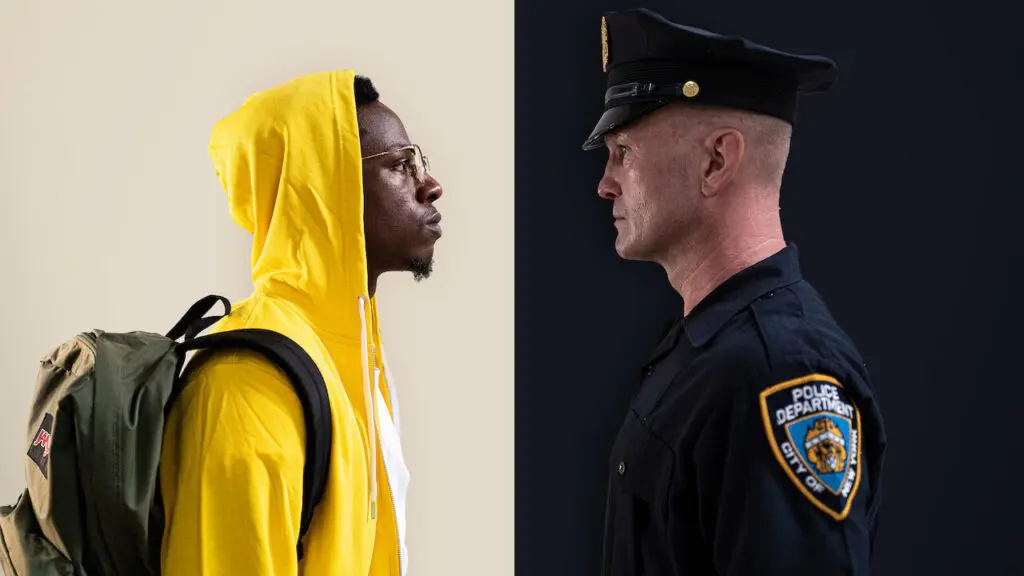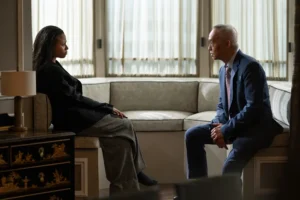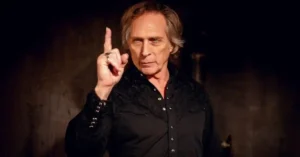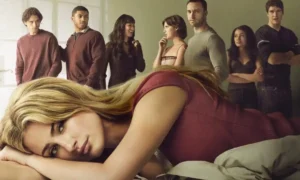Summary
Two Distant Strangers lacks the depth to have an emotional impact on the subject of police brutality.
Early in co-director and writer Travon Free’s 32-minute short Two Distant Strangers, rapper-turned-actor (in this case) Joey Bada$$ talks to his dog through the Furbo dog camera. For a few precious minutes in this now-Oscar-nominated short, Bada$$ throws his dog treats from across the city, chatting about the previous night’s events: he had a few drinks with a new fling (Zaria Simone), went back to her place, and ended up spending the night. He promises that he’ll be home, an assurance that never rings true, for when he steps outside, he enters into a time loop of police brutality. Carter (Bada$$) becomes forced to live the day for eternity, getting murdered by white police Officer Merk (Andrew Howard) over and over again.
The Furbo product placement appears minutes before Bada$$ says, “I can’t breathe,” echoing Eric Garner, unarmed and killed in 2014 by an NYPD officer. It’s a statement that has repeated by unarmed Black victims of police brutality over the past decade, and likely long before that, growing into the rallying cry for protesters around the United States and throughout the world. It should be a powerful image to see onscreen, forcing the viewer to reckon with the violence that disproportionately affects minority communities, specifically Black residents. Somehow, it feels commercialized in this instant, especially set against an advertisement for an item used to give treats to your dog when you aren’t home.
Carter wakes up, assuming the events were a dream, going back downstairs only to find the same outcome, despite his change in routine. He’s stuck in a cycle of death, unable to escape, murdered by raid police that mistake Perri’s apartment, by those that mistake him for other Black teens they’re pursuing, and even by Officer Merk after explaining to him his time-sensitive situation. Free and co-director Martin Desmond Roe make it impossible for you not to equate Carter’s deathly time loop with the current state of our brutal, racially motivated police system. There’s no denying the directors’ good intentions and their inventive idea of forcing the tried-and-true time loop genre in a more conscious direction, but Two Distant Strangers lacks empathy and depth, leaning on shock and aesthetic.
Produced by Sean “Diddy” Combs, Two Distant Strangers does have moments of clarity. The film ends with a list of names, several of which are familiar, though most are victims we’ve never heard of, showing in a small way the extent of police killings in the United States. Words appear next to some of these names, explaining what they were doing before being slain, proving to be the most memorable moment of a film that slips out of your consciousness too soon after it’s finished. It feels like a copy of something that could be more powerful, a stylized version of a piece of media that actually contains the ability to move you beyond surface emotions. With the widespread, devastating problem of police brutality, care and understanding are needed in the making of film and television. Two Distant Strangers lacks a required amount of both.
In the race for an Oscar, it’s fathomable that Free’s film could break through, due to its proximity to the Black Lives Matter protests of summer 2020 and the worldwide call for systemic change in how law enforcement interacts with underrepresented populations. For many older, male, white Academy voters, it might be enough for them to watch Free’s film and give it their vote, allowing them to feel some semblance of “doing their part.” But Two Distant Strangers uses some of its 32 minutes for an advertisement for dog cameras, and that alone should be an example of what this short film has to offer on the subject of police brutality.




